Septic Repair and Troubleshooting: Expert Remarkable Guide
If you’re a homeowner or property manager, understanding septic repair and troubleshooting is crucial to maintaining a healthy and efficient septic system. Ignoring septic problems can lead to severe and expensive issues down the road. This guide will provide practical insights and hands-on advice for tackling common septic system challenges.
Table of Contents
Key Takeaway
- Septic systems require regular maintenance to prevent failures.
- Common issues include clogs, leaks, and system overloads.
- Early detection and timely repairs can save significant costs.
- Professional help is often necessary for complex problems.
- Regular inspections and pumping are essential for system longevity.
Understanding the Basics of Septic Repair and Troubleshooting
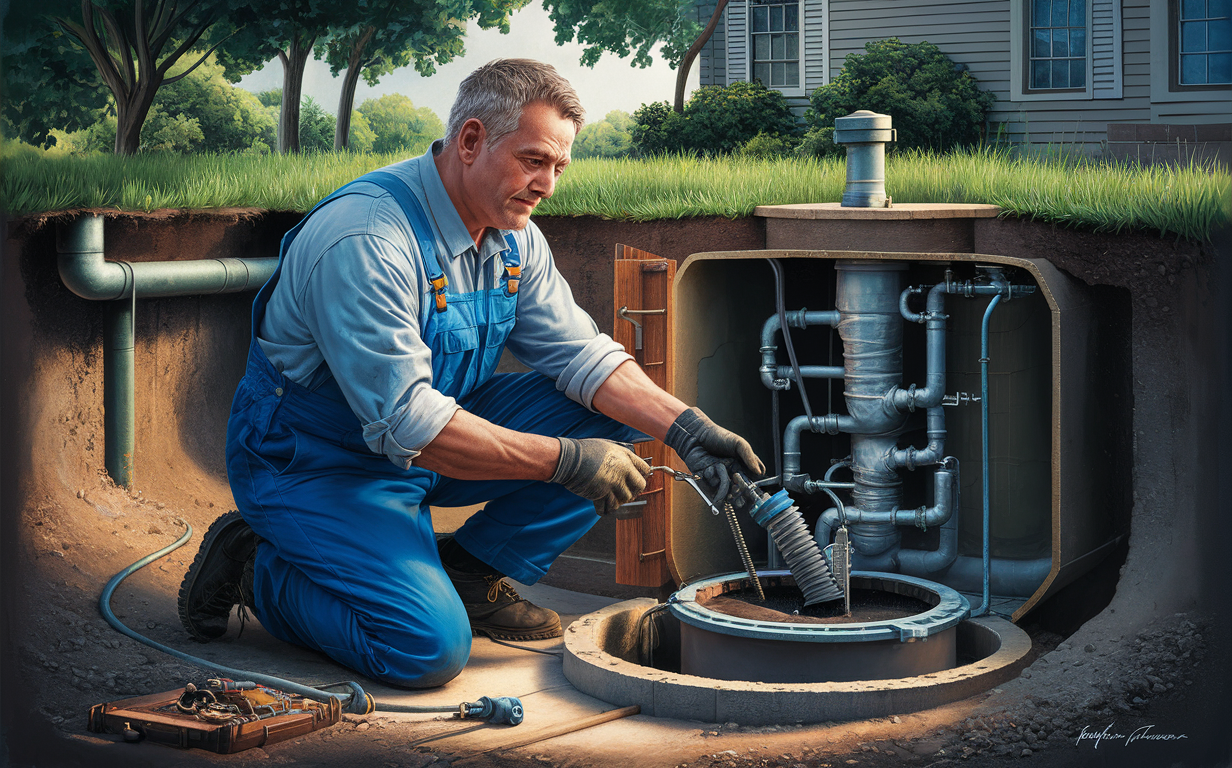
A septic system treats wastewater from homes and businesses in areas not connected to municipal sewage systems. Key components include the septic tank, drainfield, and soil. The tank holds the wastewater long enough for solids to settle, while the drain field disperses liquid into the soil, which naturally filters contaminants.
Common Septic Repair and Troubleshooting Problems
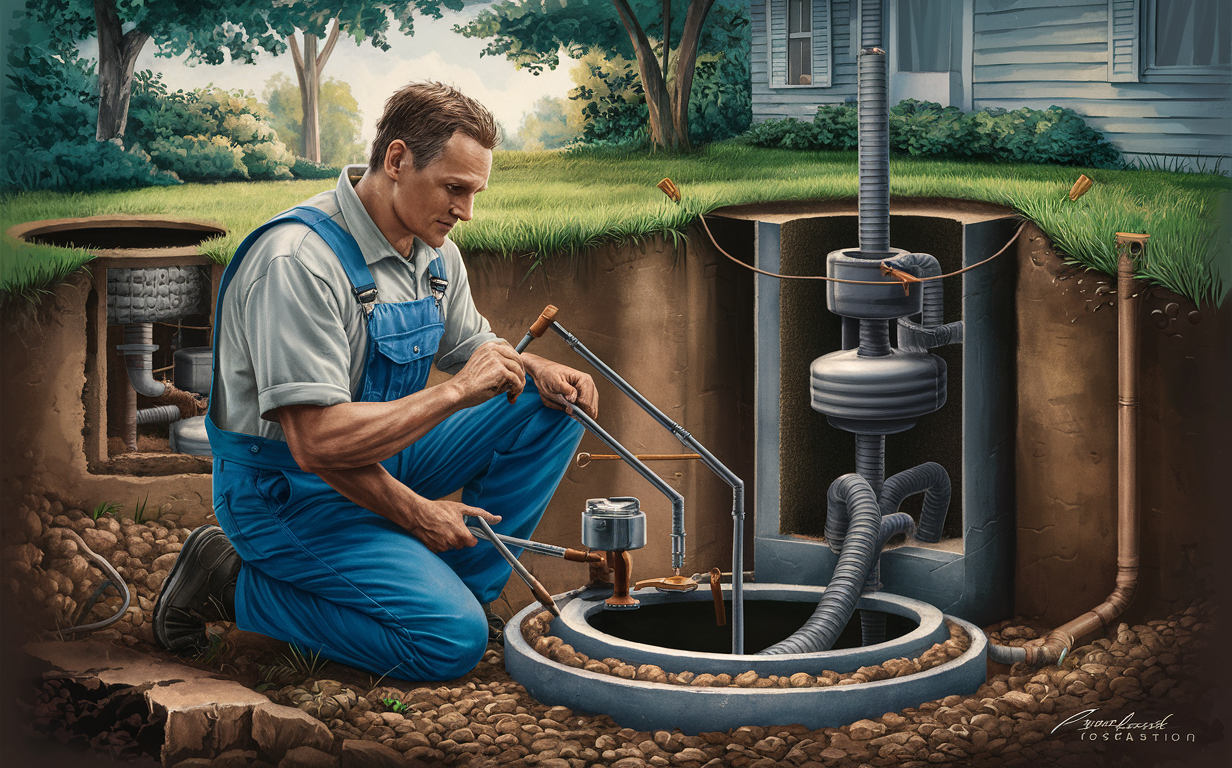
1. Clogs and Blockages
Clogs occur when solid waste or non-biodegradable items block pipes. Signs of clogs include slow drains, gurgling sounds, and backed-up toilets.
2. Leaks in Sewage Tanks or Lines
Leaks can lead to soil contamination and groundwater pollution. Wet spots near the drain field, bad odors, and unusually lush grass growth can indicate leaks.
3. System Overloads
Excessive water entering the septic tank can overwhelm the system. High water usage from multiple appliances or fixtures can cause this.
Practical Septic Repair and Troubleshooting Tips
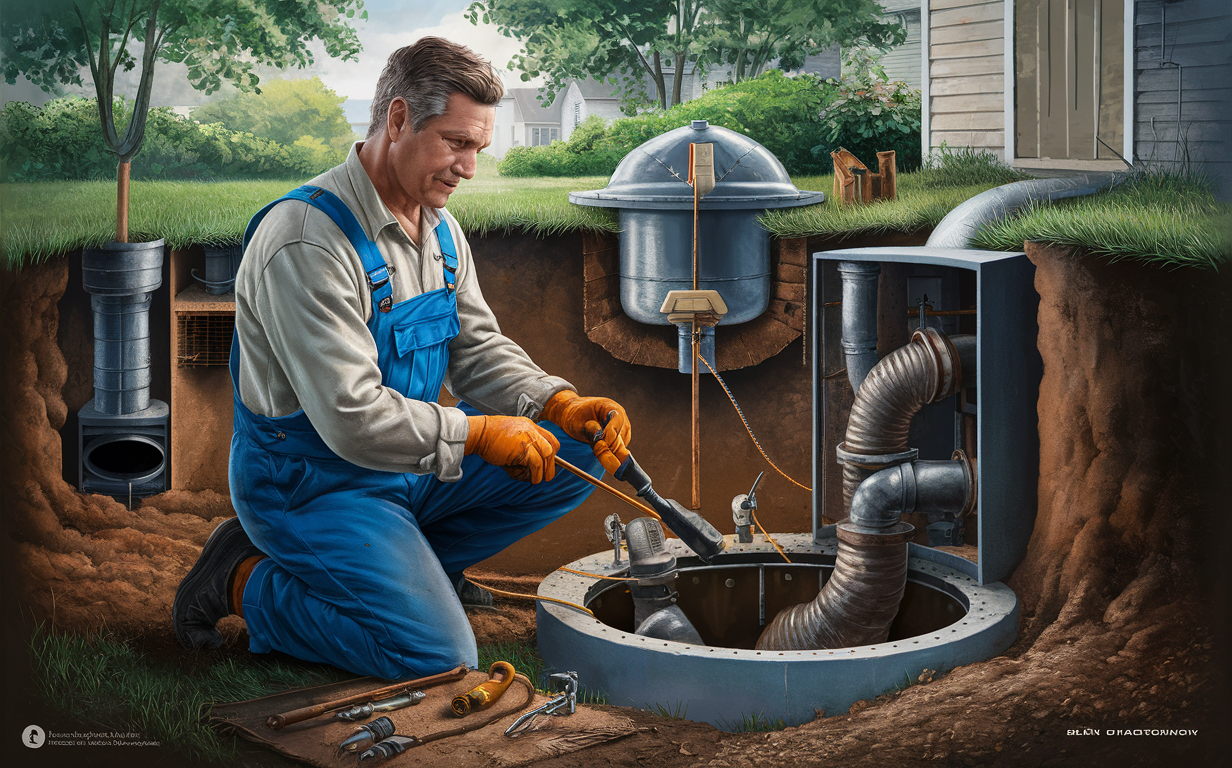
Inspecting for Clogs
- Check all drains: If only one drain is slow, the clog is likely local. If multiple drains are slow, the issue may be in the main septic line.
- Use drain cleaners sparingly: Chemical drain cleaners can harm your septic system. Opt for natural solutions like baking soda and vinegar.
Detecting Leaks
- Monitor water usage: Unexpectedly high water bills can indicate a leak.
- Look for wet patches: Puddles or unusually green areas in your yard may signal leaks.
Managing System Overloads
- Space out water usage: Avoid running multiple water-heavy appliances simultaneously.
- Fix leaks promptly: Dripping faucets and running toilets can add unnecessary load to your system.
When to Call a Professional
Some issues require expert intervention. Here are scenarios where professional help is necessary:
- Persistent clogs: If plunging and natural remedies fail, call a septic professional.
- Major leaks: Professionals have the tools to locate and fix leaks accurately.
- System backups: Backups can indicate severe problems requiring specialized equipment and expertise.
Regular Maintenance for Septic Systems
Scheduled Inspections
Regular inspections can identify potential issues before they become significant problems. Aim for an annual inspection to keep your system in top shape.
Septic Tank Pumping
Pumping removes sludge and scum from the septic tank, preventing overflow. The frequency of pumping depends on the tank size and household usage, but typically every 3-5 years is recommended.
Recommended Pumping Frequency
| Household Size | Tank Size (Gallons) | Pumping Frequency |
|---|---|---|
| 1-2 people | 1,000 | Every 5 years |
| 3-4 people | 1,000 | Every 3-4 years |
| 5-6 people | 1,500 | Every 3-4 years |
| 7-8 people | 2,000 | Every 2-3 years |
Using Septic-Safe Products
Harsh chemicals can disrupt the bacterial balance in your septic tank, impairing its function. Choose septic-safe household products.
Avoiding Common Mistakes
Flushing Non-Biodegradable Items
Items like diapers, sanitary napkins, and wipes can cause significant blockages.
Overusing Water
Excessive water usage can flood the system and lead to backups.
Neglecting Regular Maintenance
Skipping inspections and pumps can lead to catastrophic failures.
List: Things to Avoid Flushing Down the Toilet
- Sanitary napkins
- Diapers
- Wet wipes
- Paper towels
- Hair
- Dental floss
Advanced Troubleshooting Techniques
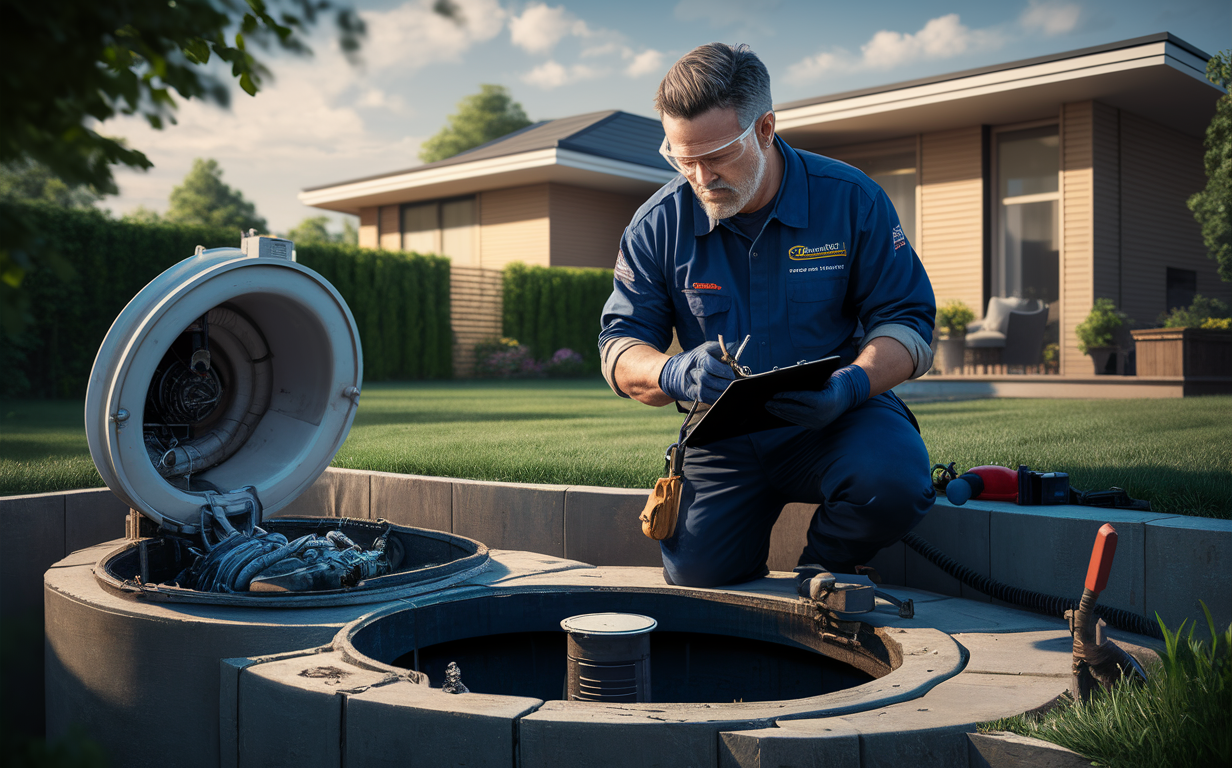
Video Inspections
A video inspection can pinpoint the exact location and nature of clogs or damage. This technique is invaluable for diagnosing complex problems.
Septic Tank Filters
Filters help prevent solids from entering the drain field. Regular cleaning and replacement of these filters can keep your system functioning smoothly.
Septic Dose Pumps
If your septic system relies on a pump to move wastewater to the drain field, ensure it’s in good working condition. Regular checks can prevent pump failures.
Signs Your Septic Dose Pump Needs Attention
| Symptom | Possible Cause | Recommended Action |
|---|---|---|
| Alarm activation | Electrical failure | Check power and wiring |
| Loud noises | Mechanical malfunction | Consult a professional |
| Frequent cycling | Float switch issues | Adjust or replace float switch |
| No operation | Pump burnout | Replace the pump |
The Role of Excavation in Septic Repair
Land Clearing
Land clearing may be necessary for new septic system installations or significant repairs.
Utility Trenching
Proper trenching ensures that all components of your septic system are correctly installed and connected.
Sitework
Preparing the site, including grading and soil testing, is crucial for a successful septic system.
The Importance of Professional Equipment
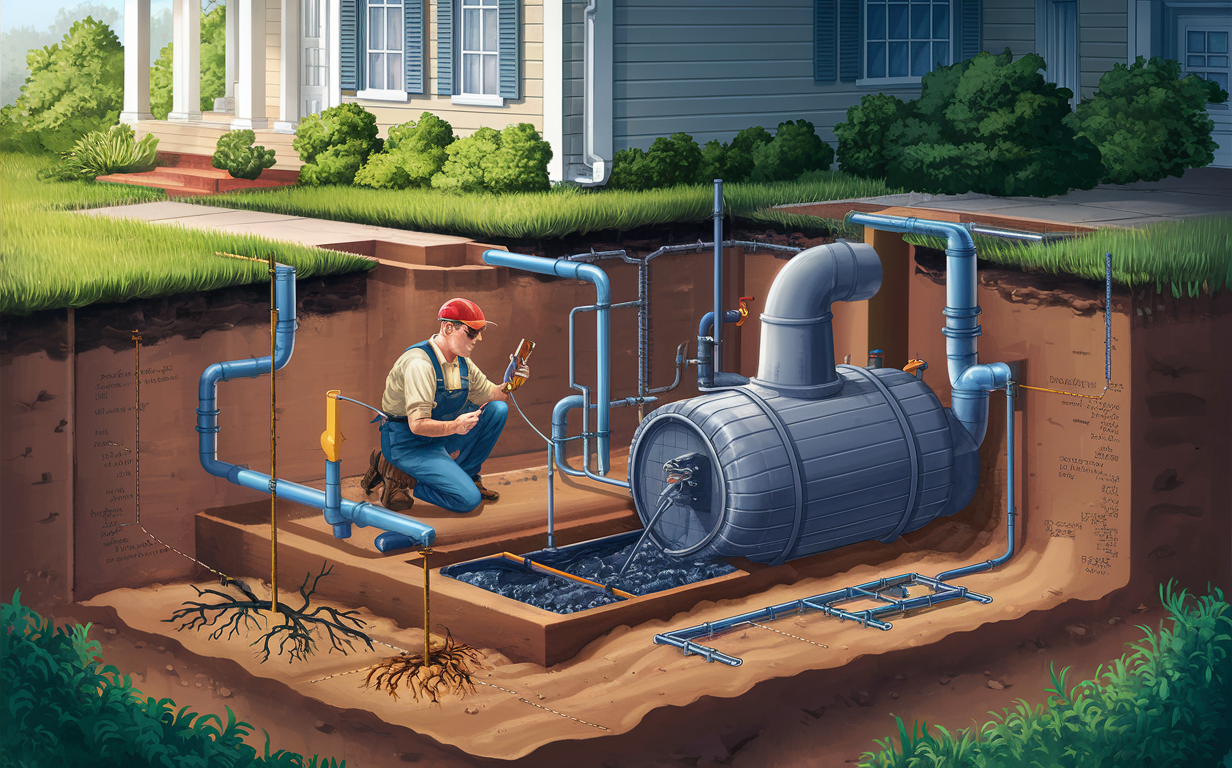
Using professional-grade tools and equipment ensures precision and efficiency. Attempting to repair or install a septic system with inadequate equipment can lead to more problems.
Facts About Septic Repair and Troubleshooting
- Septic Tank Overview: A septic system is a small-scale sewage treatment system used in areas not connected to a centralized sewage system. It typically consists of a septic tank and a drain field.
- Common Septic Problems: Septic systems can experience various issues, including clogged pipes, malfunctioning pumps, and leaking tanks. Regular maintenance can help prevent these problems.
- Septic Tank Cleaning: Septic tanks should be cleaned every 3-5 years to remove sludge and scum buildup. This will help prevent clogs and ensure the system functions properly.
- Troubleshooting Septic Problems:
- Slow Drains: If drains are slow, it could be a sign of a clogged pipe. Try using a plunger or a drain snake to clear the blockage. If that doesn’t work, call a professional.
- Gurgling Sounds: Gurgling sounds in the toilet or sink could indicate a problem with the septic system. This could be caused by a clogged pipe or a malfunctioning pump.
- Sewage Backup: If sewage is backing up into the home, it’s a serious problem that requires immediate attention. This could be caused by a clogged drain field or a malfunctioning pump.
- Foul Odors: Foul odors around the septic tank or in the home could indicate a problem with the system. This could be caused by a clogged vent pipe or a malfunctioning pump.
- Septic Repair: Septic repair can be costly, so it’s important to take care of the system to prevent major issues. Regular maintenance, such as pump inspections and tank cleanings, can help extend the life of the system.
- Professional Help: If you suspect a problem with your septic system, it’s important to call a professional. They can diagnose the issue and provide a solution to get your system back in working order.
Key Takeaways for Homeowners
- Regular inspections and maintenance are crucial for preventing major issues.
- Early detection of problems can save significant repair costs.
- Professional help is often necessary for complex repairs and installations.
- Using septic-safe products and managing water usage can prolong the life of your system.
- Proper site preparation and professional equipment are essential for successful installations and repairs.
Conclusion
Understanding septic repair and troubleshooting can save you time, money, and stress. Regular maintenance, early detection of issues, and professional help when needed are the keys to a healthy septic system. By following the tips and advice outlined in this guide, you can ensure your septic system remains efficient and trouble-free for years to come. For more information, you can visit our website or contact us.

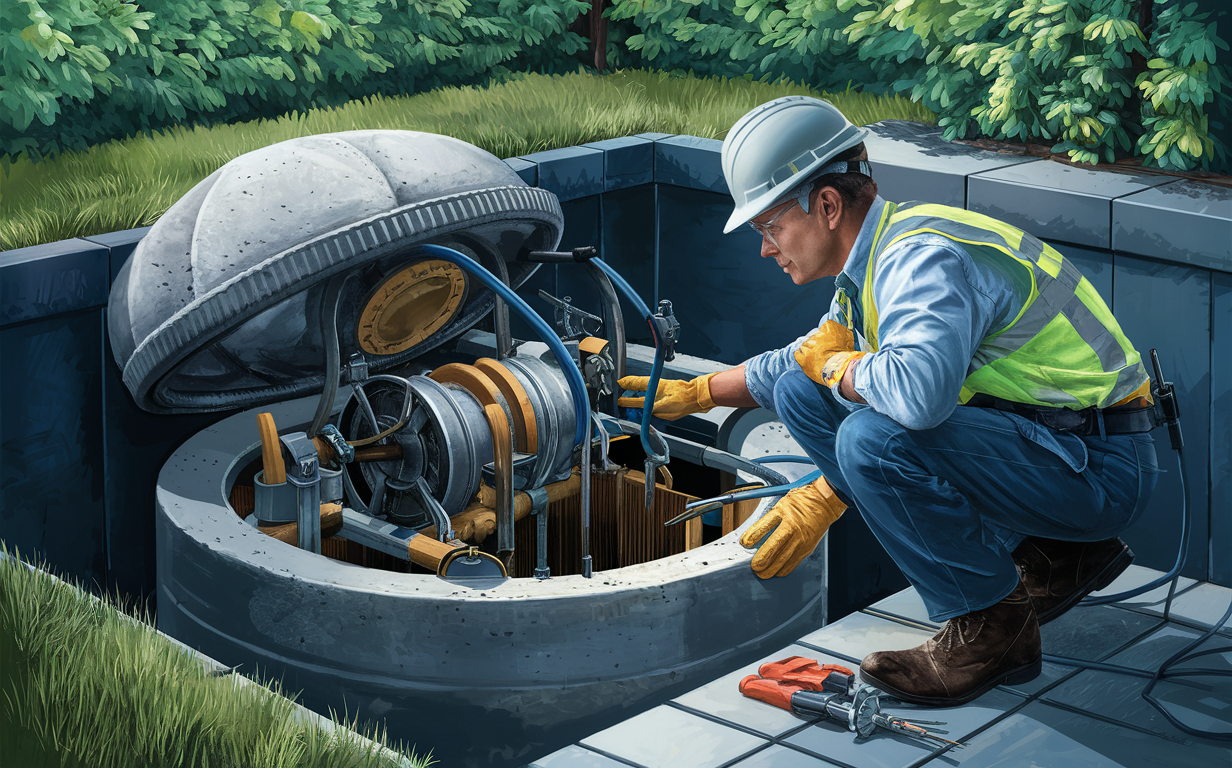
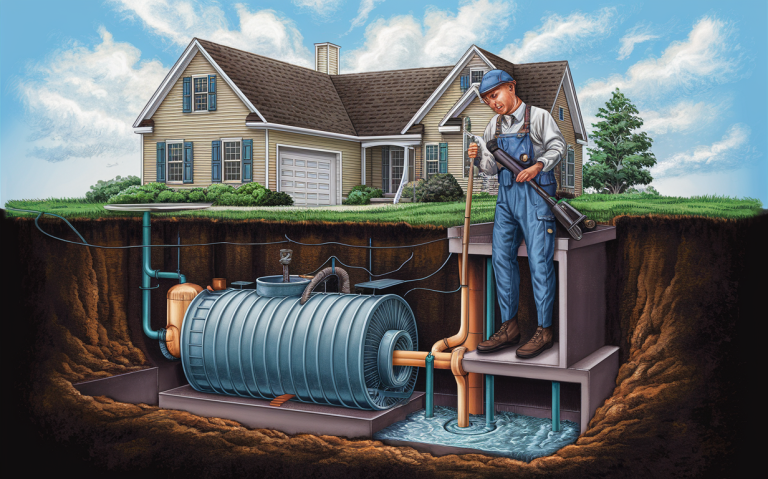
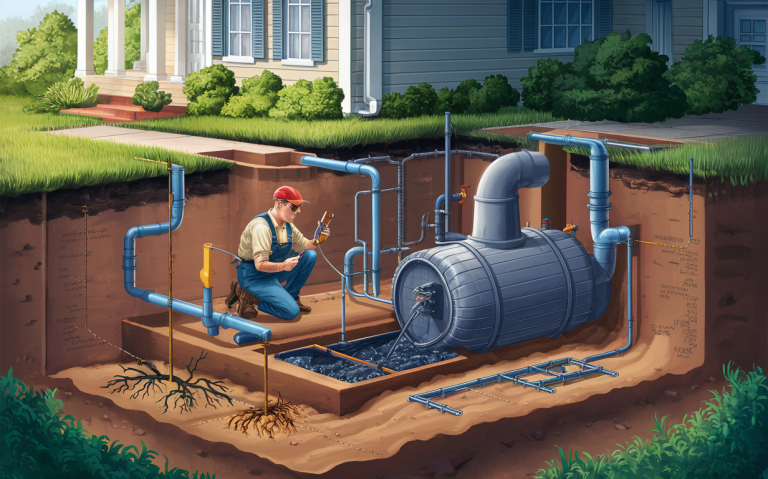

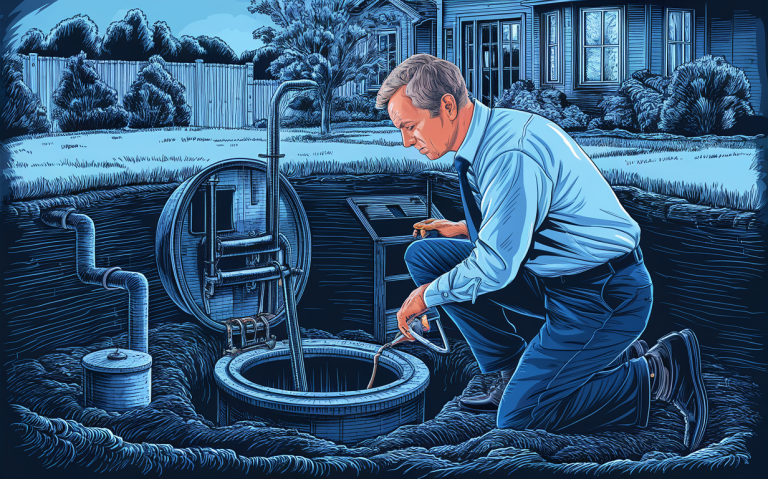

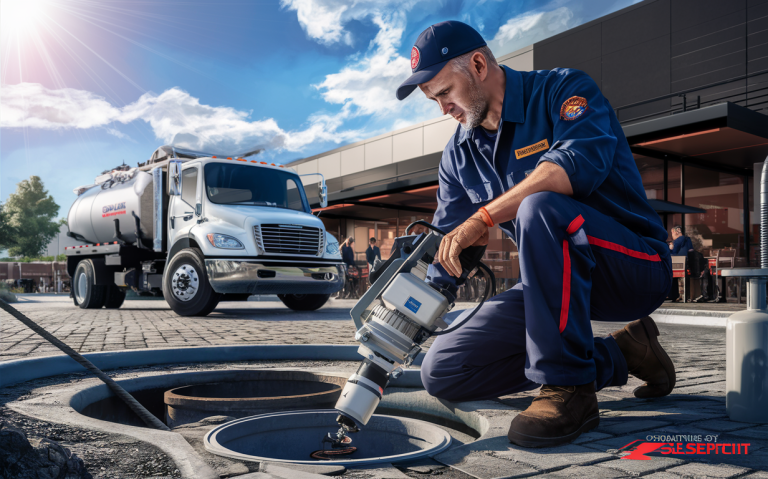
 Texway Wastewater Services is a septic, wastewater, and excavation company based out of Burleson, Texas and serving the surrounding areas. We specialize in
Texway Wastewater Services is a septic, wastewater, and excavation company based out of Burleson, Texas and serving the surrounding areas. We specialize in